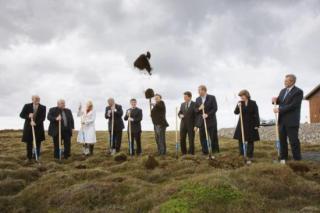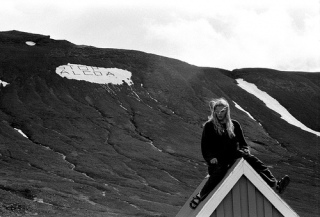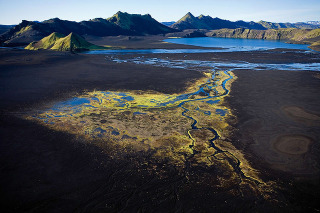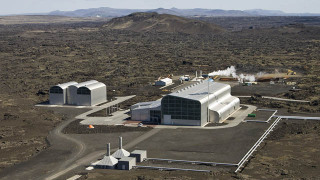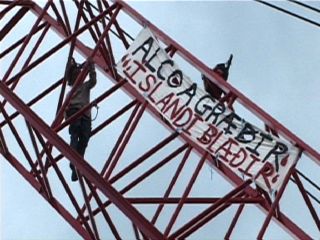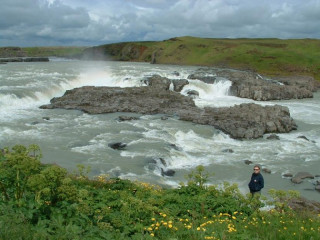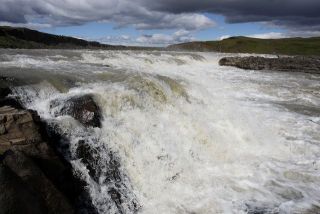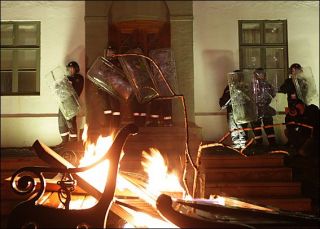Archive for March, 2011
Mar 28 2011
ALCOA, Century Aluminum, Economics
The Los Angeles Times
Henry Chu, Reporting from Grundartangi, Iceland
Some say aluminum is vital to Iceland’s budding economic recovery. Others say the industry was at the root of the nation’s 2008 economic collapse.
Part of the cure — or cause — of Iceland’s spectacular economic meltdown sits here on a rugged fiord backed by frigid blue waters and snowcapped mountains. Read More
Mar 22 2011
1 Comment
ALCOA, Century Aluminum, Heavy Industry, Rio Tinto Alcan
Grapevine.is
Most Icelanders would like to see their country’s economy turn towards innovative industries rather than aluminium smelters, a new survey shows.
Vísir reports on the results of an online poll conducted by the business analysis company Miðlun. Respondents were asked what the most important field of employment was.
Of those who responded, 30.8% said domestic industry should be a top priority. This was followed by companies focusing on innovation (18.1%) and jobs related to the fishing industry (14.7%).
Only 13% said they believed heavy industry was the most important area of unemployment that Iceland needs to focus on. Read More
Mar 17 2011
IceSave, Landsvirkjun, Langisjór, Rio Tinto Alcan, Tungnaá
Yesterday, national energy company Landsvirkjun received the first loan for its planned Búðarháls dam in Tungnaá River (south Iceland, north-east of Þjórsá river). The 8,6 billion ISK loan comes from the Nordic Investment Bank (NIB) and is dependent on the outcome of the referendum about the so-called IceSave bill, which will take place on April 9th. The energy is meant for Rio Tinto- Alcan’s increased aluminium production. Read More
Mar 06 2011
Alterra Power/Magma Energy, Century Aluminum, Geothermal Energy, H.S. Orka, Helguvík, Reykjanes
H.S. Orka, an Icelandic energy company recently bought by Canadian firm Magma Energy, has to widen its planned drilling area for the planned enlargement of Reykjanes geothermal power plant and proof that enough energy can be found on a larger area then already arranged for. These are conditions required from the National Energy Authority (NEA), which fears overexploitation of geothermal areas on the Reykjanes peninsula, in the south-west corner of Iceland. An aluminium smelter in Helguvík, which has been in the making for the last few years, is dependent on the enlargement. Read More
Mar 05 2011
1 Comment
ALCOA, Bjarnarflag, Climate Change, Geothermal Energy, Jaap Krater, Jökulsá á Fjöllum, Krafla and Þeistareykir, Landsvirkjun, Saving Iceland, Skagafjörður, Skjálfandafljót
By Jaap Krater
Last spring ALCOA released the first draft of the joint environmental impact assessment for the proposed Bakki smelter and power plants at Krafla and Theistareykir. Recently Iceland’s National Planning Agency commented on the draft assessment in a damning commentary.
The agency stated that the environmental impacts of the project are high and cannot be mitigated. 17,000 ha of untouched wilderness will be affected. Greenhouse gas emissions of the project would constitute 14% of Iceland’s total. There is a great deal of uncertainty on the full impact of the planned power plants and particularly on how much geothermal energy can be sustainably produced. Finally, the assessed energy projects will not be able to fully power the smelter, with 140 MW of capacity missing.
This confirms three key points of critique on the smelter that we have been voicing for several years now. Read More
Mar 03 2011
Corruption, Democracy deficit, Landsvirkjun, Þjórsá
The following statement was unanimously agreed upon on by a well attended open meeting against the planned dams in Þjórsá river, held in Reykjavík on March 2nd 2011, organized by young locals.
Due to the fact that the Ministry of Environment has now certified the land-use plan of Flóahreppur and Skeiða- og Gnúpverjahreppur municipalities, allowing for the construction of three dams by Urriðafoss, Hvammur and Holt, the environmentalist organization Sól á Suðurlandi (Sun in the South) challenges the government to state officially that no dams will be built in the lower Þjórsá river, against the peoples wishes. Read More
Mar 01 2011
2 Comments
ALCOA, Corruption, Democracy deficit, Denmark, Greenland, Workers Rights
Below is a press release sent to the media in Greenland jointly by two organizations: “Against Aluminium Smelter in Greenland” and “Avataq” (environmental organization).
Who is in power? Naalakkersuisut or Alcoa?
Last week’s meeting between members of the Greenland Government (Naalakkersuisut) and Alcoa clearly shows the power relationship between the industry giant and our nation, that has characterized the project’s development from the beginning, Alcoa dictates and Naalakkersuisut obey across the population.
This form of government is undemocratic and demeaning to our people who are still recovering from 250 years of colonial rule.
Alcoa has made it clear to Naalakkersuisut that a condition to continue the aluminum project in Maniitsoq is the issue of cheap foreign labor will be resolved immediately. Read More
Mar 01 2011
Century Aluminum, Corruption, Cultural, Democracy deficit, Landsvirkjun, Rio Tinto Alcan, Þjórsá
Sól a Suðurlandi, the local grass roots resistance group to the projected dams in Lower Thjorsa (Þjórsá) river, call a solidarity meeting tomorrow, March 2, in Reykjavik. The meeting will focus on demands that the three projected dams be stopped and that reconciliation be reached in communities that have been split for many years because of the plans for the dams.
Read More
Mar 01 2011
Climate Change, COP15, Democracy deficit, direct action, Economic Collapse, Mark Kennedy, Repression, RVK9, Saving Iceland, Workers Rights
By Tord Björk
Social Forum Journey / Malmö-Belem-Istanbul
Abstract: This article looks at how the national mass protests against neoliberal regimes in Iceland, Tunisia, Egypt and other African and Arabic countries and the Wisconsin in the US are linked with the climate justice movement. Both national protests and the climate justice movement are developing unevenly. National protests in some hot spots, the climate campaigning more even all over the world. By looking at how countries like Denmark and its organized civil society acts it can be possible to understand how the struggle both for defensive goals and constructive solutions can strengthen each other by what lacked in Denmark but exists on the global level. That is solidarity against repression and building resistance which enables solutions uniting anti-neoliberal struggles in general and specific areas. Read More
